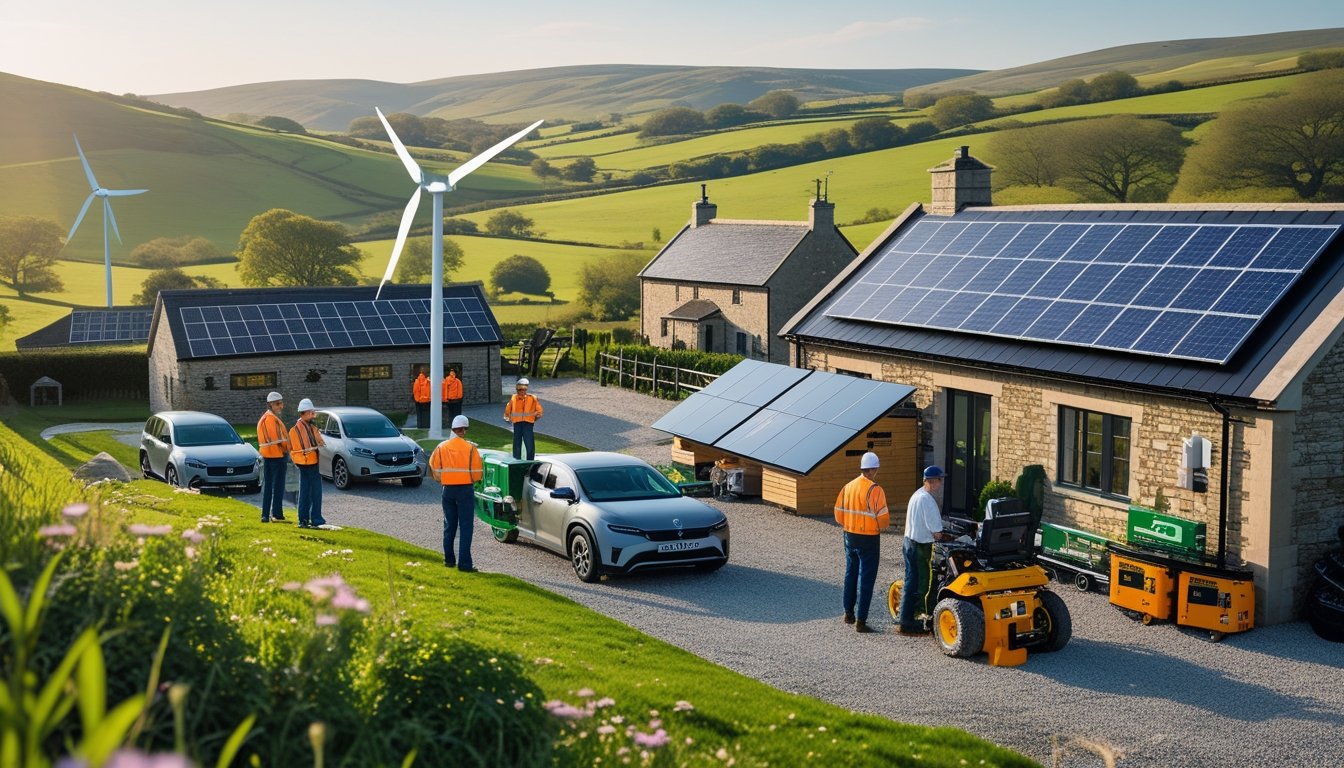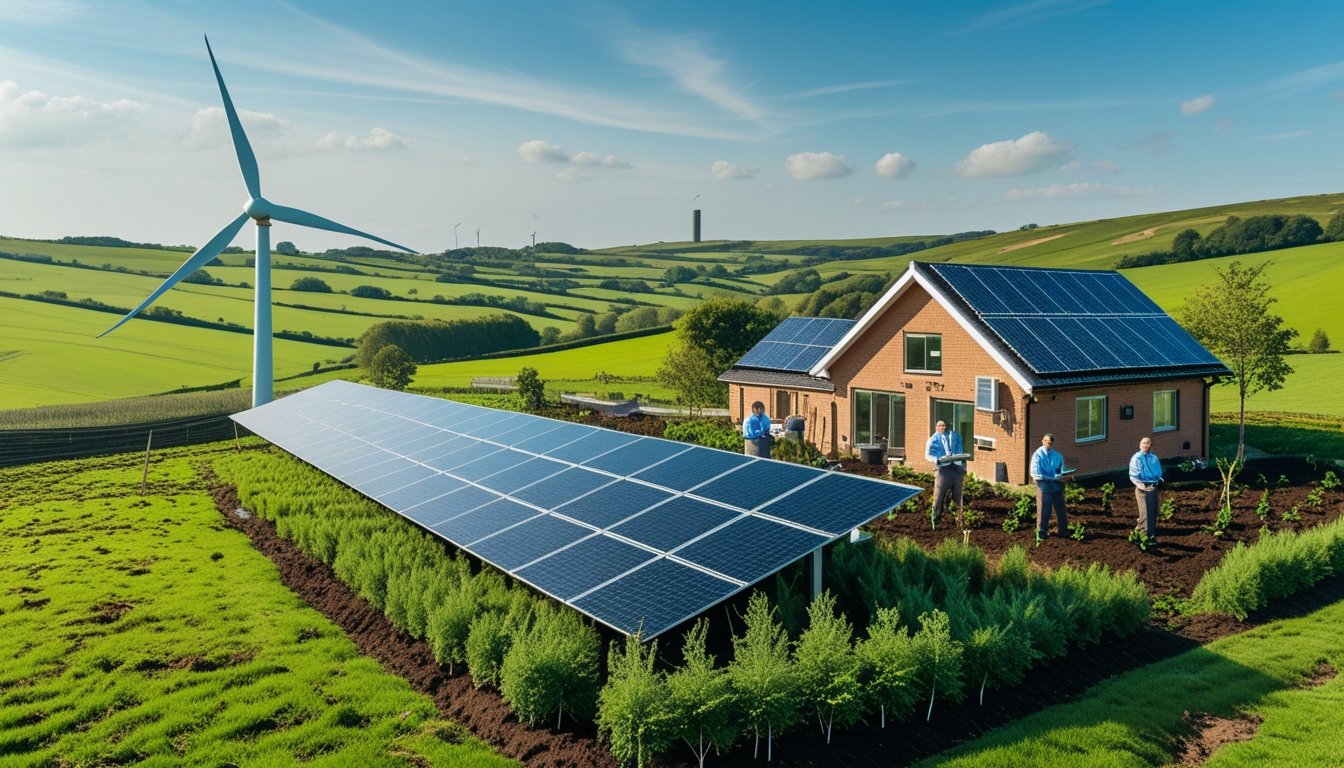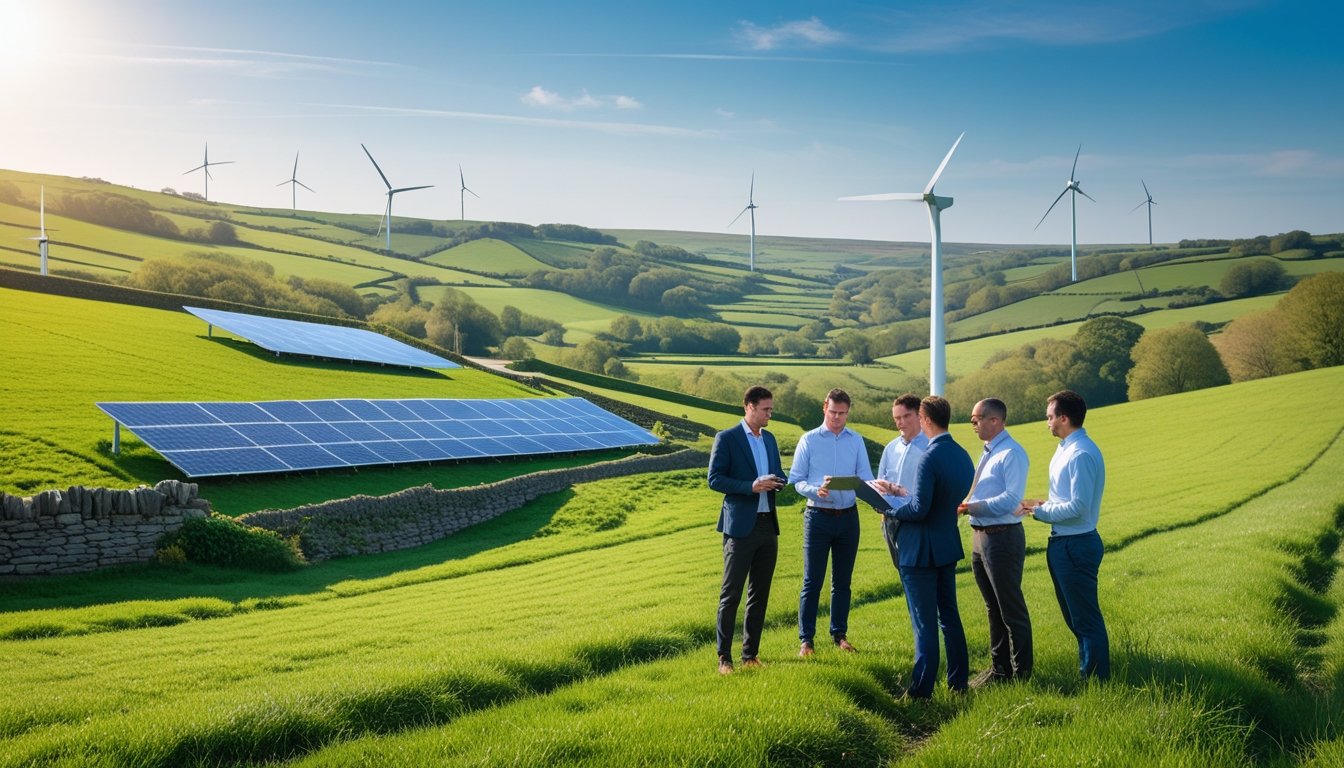Late updated: 29 Jun 2025 12:06
Written by: Oliver Bennett
Sustainable Tech Innovations For UK Countryside Development: Advancing Rural Growth
Sustainable technology innovations are reshaping the development landscape in the UK countryside, offering promising pathways for a greener future. These innovations harness cutting-edge technology and strategic investments to foster environmental conservation while driving economic growth. By supporting biodiversity and transforming land use, they play a crucial role in achieving the nation's sustainability goals.

Our journey into the sustainable advancement of the British countryside reveals a dynamic synergy between technology, policy, and community engagement. Through strategic initiatives, we aim to address pressing issues like soil health and agricultural productivity, creating opportunities for businesses and local communities alike. This exploration into innovation promises new prospects for those committed to sustainable development.
Key Takeaways
- Sustainable tech is pivotal for the UK's countryside growth.
- Technology is transforming land use and boosting productivity.
- Community and business collaborations drive innovation.
Emerging Sustainable Technologies Transforming the UK Countryside
In recent years, technological innovations in the UK countryside have revolutionised energy production and agricultural efficiency. With a focus on sustainability, these advancements include precision farming, green innovations for agriculture and forestry, and renewable energy integration in rural communities, significantly reducing greenhouse gas emissions and promoting soil health.
Advancements in Precision Agriculture
Precision agriculture employs agri-tech solutions such as GPS and IoT sensors to enhance farming efficiency and sustainability. By leveraging data, we can monitor crop health, optimise water usage, and reduce waste. This approach minimises carbon emissions by decreasing the need for chemical inputs. It's a powerful tool, allowing farmers to tailor their practices specifically to the needs of each hectare, resulting in improved yield and reduced environmental impact.
Green Innovation for Agriculture and Forestry
In agriculture and forestry, green innovations are critical. We see a shift towards sustainable farming practices like crop rotation, reduced tillage, and organic fertilisers. Innovations also include eco-friendly machinery and biodegradable packaging. These changes not only conserve resources but also reduce carbon dioxide output. In forestry, selective logging and reforestation contribute to carbon sequestration, supporting the UK's net-zero targets.
Renewable Energy Integration in Rural Communities
Renewable energy sources are transforming rural energy landscapes. Rural communities are adopting solar power, wind energy, and bioenergy to generate clean electricity. These green technologies reduce reliance on fossil fuels and support local energy resilience. By harnessing waste-to-energy conversion and other innovative methods, we can significantly cut greenhouse gas emissions. Such efforts play a vital role in moving towards a sustainable future.
Driving Sustainable Growth and Environmental Conservation in Countryside Development

We must harness sustainable technologies to foster growth and protect the environment. Key areas such as adapting to climate change, conserving biodiversity, and enhancing resource efficiency are pivotal to countryside development.
Climate Change Adaptation and Carbon Sequestration
Adapting to climate change is essential for sustainable development in rural areas. Carbon sequestration techniques play a crucial role in reducing carbon footprints by capturing CO2 from the atmosphere. Innovate UK supports research and innovation in this field, promoting sustainable agricultural practices that increase productivity while limiting greenhouse gas emissions.
To combat extreme weather, we need to implement robust environmental monitoring systems. Local stakeholders can utilise modelling and data analytics to better understand climate impacts and make informed decisions on land use and resource allocation.
Biodiversity Conservation and Land Stewardship
Biodiversity conservation is central to maintaining the health of our ecosystems. Collaborative efforts between landowners and environmental organisations can ensure effective land stewardship. Conservation measures must include preserving habitats, promoting wildlife corridors, and safeguarding genetic diversity.
Biosiversity conservation supports agricultural productivity and food security by maintaining ecosystem services. By balancing land use with conservation needs, we can achieve a sustainable coexistence. Community engagement and education empower stakeholders to take active roles in preservation efforts, enhancing resilience against environmental changes.
Circular Economy and Resource Efficiency
Transitioning to a circular economy can significantly enhance resource efficiency in countryside development. By minimising waste and promoting the reuse of materials, we decrease reliance on fossil fuels and lower environmental footprints. Green growth strategies encourage innovative practices in agriculture and energy sectors.
Investments in renewable energy, such as solar and electric vehicles, promote energy security and reduce emissions. By embracing a circular economy, we foster economic growth while preserving natural resources. Collaborating with local enterprises and policymakers ensures sustainable resource management practices are implemented effectively.
Frequently Asked Questions

Sustainable technologies are profoundly shaping the UK's rural development. From renewable energy solutions to smart agriculture practices, these innovations are enhancing productivity and conserving biodiversity within rural landscapes.
What are the leading sustainable technologies being implemented in rural development within the UK?
Leading sustainable technologies in rural UK development include precision irrigation systems, AI-driven land use strategies, and renewable energy installations like solar and wind power. These innovations drive efficiency in agriculture, reduce carbon emissions, and foster sustainable growth, ensuring that the countryside thrives amidst modern challenges.
How do renewable energy solutions contribute to the evolution of the UK countryside?
Renewable energy solutions like solar farms and wind turbines are crucial in reshaping the UK countryside. They provide clean energy, reduce reliance on fossil fuels, and help meet national carbon neutrality goals. Such green projects are often combined with community initiatives to promote sustainability and energy independence in rural areas.
In what ways are smart agriculture practices transforming the productivity of UK agriculture?
Smart agriculture practices, including precision farming and drone technology, are revolutionising UK agriculture. These methods enhance crop management through real-time data analysis, optimise resource usage, and improve yield efficiency. By integrating smart technologies, UK farms are becoming more resilient and capable of supporting larger populations sustainably.
What role does conservation technology play in protecting biodiversity in rural UK landscapes?
Conservation technology is vital in safeguarding biodiversity in the UK countryside. Tools like satellite monitoring and biodiversity mapping help track wildlife populations and habitats. These technologies enable targeted conservation efforts, ensuring that native species and ecosystems remain protected amid development pressures.
How are advancements in sustainable transport impacting accessibility and connectivity in the UK countryside?
Advancements in sustainable transport, like electric public transport and improved cycling infrastructure, are transforming rural accessibility. These innovations enhance connectivity between towns and remote areas while reducing environmental impact. By embracing greener transport options, rural communities can enjoy increased mobility and access to services.
What initiatives support the adoption of green technologies by rural communities in the UK?
Numerous initiatives support rural communities in adopting green technologies. Government grants and subsidies, educational programs, and local cooperative projects encourage the use of sustainable tech. These measures empower communities to transition to environmentally friendly practices, fostering both economic and environmental resilience in rural regions.
